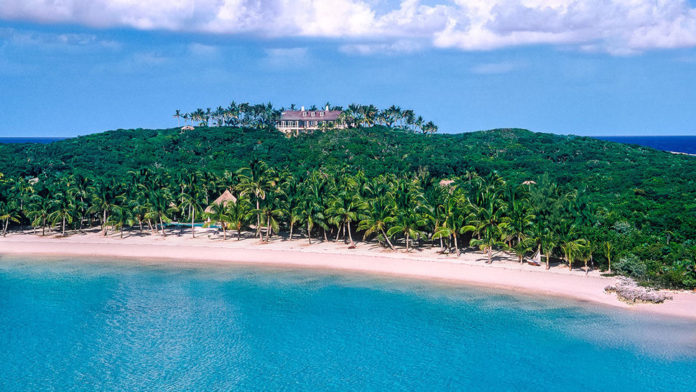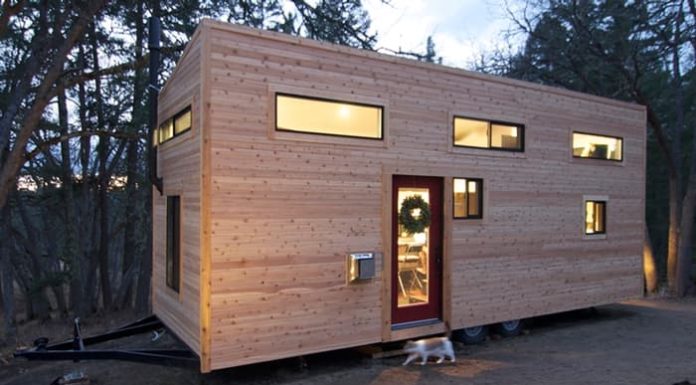Ballpark estimate: $100,000-$5 million+ (Many more extravagant options exist.)
If your idea of paradise is to have your own private island, you might be pleasantly surprised to find out that there are many options around the world that could be within a modest budget.
In fact, some of the more remote private islands—both in the United States and around the world—can be quite affordable. The only catch is that they could be difficult to access from the mainland, and therefore can also be quite an expensive location on which to build. A good rule of thumb to consider is that the more remote an island is, as well as the harder it is to get there, and the less developed it is, the lower you can expect the cost to be. But there are also some regions where islands are common and are easy to get to, and with so many from which to choose, the cost for many of them is on the lower end of the spectrum.
A Gamut of Options Exist
When you think of your ideal island, what do you picture? Are you dreaming of a wild island brimming with nature and without any sewer lines? Or do you prefer a luxurious hideaway? Or something in between? The good news is that when shopping for a private island, the array of options is such that there is truly an island to fit most buyers. Better yet, some of the lower-end islands can be had for a lot less than what you would expect to pay for a home in a middle-class suburb or popular city.
While you can find islands for sale in most parts of the world, some of the more affordable places to own an island include the United States, Canada, Sweden, Ireland, and Scotland.
How to Find
If this sounds appealing, you can do a search online for reputable agencies with islands for sale in the area of the world that strikes a chord in your heart. There are approximately 1,000 islands on the market worldwide in any given year, and many of them can be found online through PrivateIslandsOnline.com or through Vladi Private Islands. Or you can talk to a local real estate agency and let them know your preferences and find out what options exist in your target area. Just be sure to read the reviews and check with the Better Business Bureau (or similar types of regulatory agencies in the country you are considering) to be sure that the broker or real estate agency you are considering comes well recommended. This is especially important before you sign any legal agreements and allow money to exchange hands, so you won’t become a victim of fraud.
Weighing the Costs and Benefits
Keep in mind that few people buy islands because they are a practical investment. Owning an island can be a complicated endeavor, so you need to be committed to deal with the work involved in getting to the location, and staying there. But since most people decide to buy an island because it moves them in some way, they find the difficulties involved in traveling to the island and transporting materials and supplies there to be well worth the effort involved.
Questions to Ask
When shopping for a private island, some of the questions to ask the broker include how large the island is, what the weather is, and whether there’s some way to get groceries, use electricity and sewer, and build a home. You’ll also need to know how best to get to the island from the mainland, how you’ll get provisions over, if any dwellings or structures exist on the island, whether you’ll have access to utilities, and what will be involved with building there.
Sale Terms
Further, it’s crucial need to understand the terms of the sale, since there are some key variations depending on the location. For islands in United States, Canada, and the Caribbean, sales are often freehold islands, which means that the terms are outright and you own the island fully upon the terms of the agreement. In Asia and the Southern Pacific areas, island sales are typically set up as long-term leases rather than outright sales. This means you have possession for an established period of time but don’t actually own the island. (Typically, freehold arrangements are 30 to 99 years.) This is an important distinction and also tends to come with more restrictions on developing the land, so you’ll need to know the specifics up front.
Cost for a Private Island
When it comes to the cost of a private island, the options span a wide gamut depending on where in the world you are considering, how large the island is, and what it includes. To give you an idea of some scenarios that exist, here are some cost scenarios:
For instance, on the low end of the spectrum, an island located in Nova Scotia that contains 16 acres costs $60,000.
A one-acre island in Maine that is undeveloped costs $40,000, while a one-acre island in Ontario with remnants of deteriorating homes from a century ago is $100,000. In the $100,000 price range, you can also get a three-acre shaded island in British Columbia that is minus the structures but loaded with pine trees and hilly terrain. A three-acre island in Mexico comes in at the $150,000 price range. For $175,000, you can get a two-acre island in Michigan that comes equipped with a small but very livable cottage that’s been updated. Or for $400,00, you can get an island in Panama that spans about an acre and has a home with two-bedrooms.
If you have more to invest in this purchase and you desire something more luxurious, for $1.25 million, you can own a 2.8-acre island in Rhode Island that has an elegant two-bedroom cottage with a glass porch to enjoy your panoramic views.
A two-acre private island located in Belize features two homes, a guest house, and a pier for a little over $3 million.
For some really extravagant options, an island off of Dubai will set you back $16 million. It contains 11 acres that have not yet been developed. If you don’t want to do any work, though, consider an island near South Beach Miami that has 26 acres and contains a three-bedroom house and tennis courts, for a cool $110 million.
Other Expenses
In addition to the actual costs of buying an island, there are many related expenses, such as buying a boat; building a dock; meeting regulations required for sewer, electricity, and other utilities; and getting building permits. It’s also important to know that most island deals are cash transactions, since banks typically won’t give a mortgage on an island purchase. In addition, everything you need on an island will be much more expensive than buying it on the mainland since you will need have it transported, so island ownership is not for someone living on a tight budget.
A Final Note
One way to help recoup some of the costs of buying a private island is by renting it to visitors when you aren’t there. Since private islands as so desirable, many people are willing to pay a premium for the experience and this can be a great way to help make your investment pay off.











































